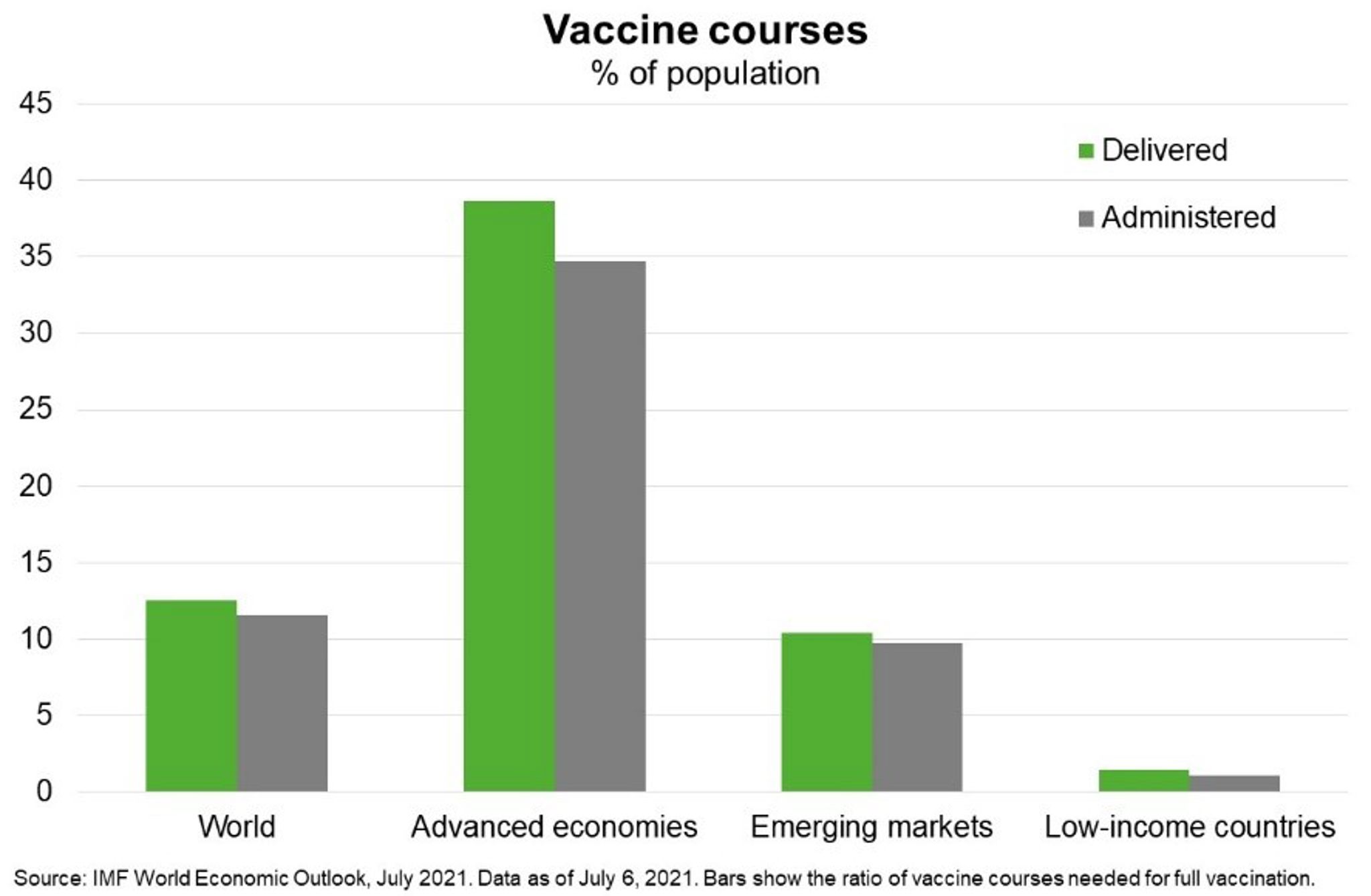Emerging Asia—Delta outbreak threatens economic recovery
Global COVID-19 infections have surged owing to the more contagious and virulent Delta variant. Whereas almost 40% of the population in advanced economies have been fully vaccinated, less than half that number are inoculated in emerging markets and even fewer in low-income countries (Chart). As such, while the link between infections and hospitalisations has been diluted in advanced economies, low vaccination rates leave emerging Southeast Asian economies more exposed to the COVID-19 virus.
Mobility restrictions have been imposed or tightened in many Asian countries. An outbreak of the Delta variant since mid-July in China has seen local lockdowns, mass testing and travel restrictions. Despite business and consumer adaptation, there will still be some fallout from lower mobility. Economic recoveries are therefore under threat. Emerging Asian economies that rely on tourism and remittances from cross-border labour flows to support incomes and GDP growth are particularly exposed. Low vaccination rates increase the risk that the virus mutates to a vaccine-resistant strain, prompting longer and more stringent global economic lockdowns.
A large proportion of Australian exports to Asia are energy and resources, including iron ore, coal, petroleum and gas, products used as inputs into Asia’s important manufacturing sectors and electricity generation. Disruptions to production in these sectors could lower demand for Australian resources and energy commodities. If incomes fall, certain food and agriculture products face lower demand as Asian consumers substitute to cheaper products. Demand for Australian exports used in Asian retail, services and hospitality sectors are likely to suffer. Live animals, beef, alcoholic beverages and fish exports are particularly exposed to lower Asian demand.

